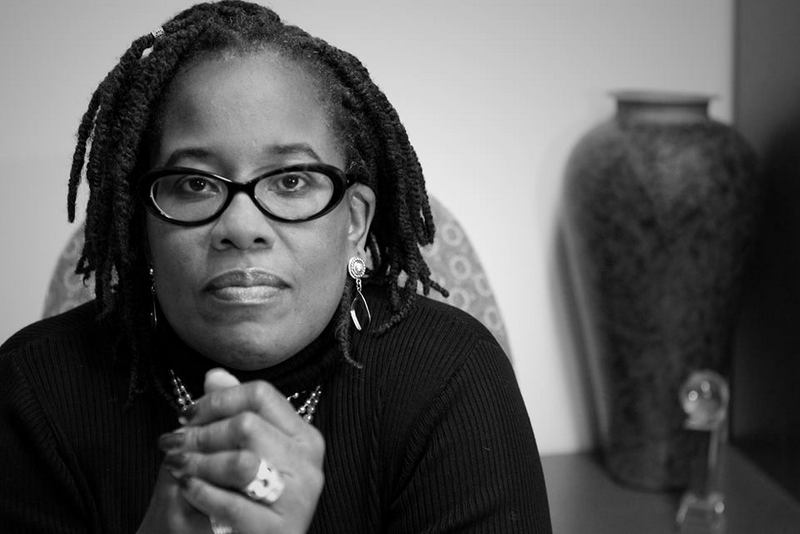[ad_1]
Dr. Kaye Whitehead
Special to AFRO
He stood at the podium that day, hot, sweaty, and perhaps a little nervous, with millions of eyes upon him. This speech, he knew, had to be the greatest one that he had ever delivered. Introduced as the “moral leader of our nation,” Dr. Martin Luther King Jr. had probably been planning for this moment ever since he met A. Philip Randolph, the founder of the Brotherhood of Sleeping Car Porters (BSCP) and one of the organizers of the 1963 March on Washington for Jobs and Freedom.
It was a March built on compromise as Randolph’s team, including civil rights activist Bayard Rustin, had initially been planning a march for jobs, and King’s team had been planning a march for freedom. It was a day designed to capture and harness the energy of the youth and connect it with the tenacity and endurance of the elders. My father said that as he stood in the crowd, barely able to see the stage, he was overcome with emotion, and he felt the weight of the future on his shoulders. Growing up, my father spoon-fed me stories about Black history. I would sit at his feet and listen to him talk about marching and singing, about preaching and praying, and about sacrifices and struggle. My father said that by the end of the march, he was prepared to go back home and change the south or die trying. It was a moment that changed his life.

The march, which took place 100 years after the release of Lincoln’s Emancipation Proclamation; nine years after the Brown v. Board decision; and seven years after the ending of the Montgomery Bus Boycott, took months of planning and negotiating. President Kennedy expressed a bevy of concerns as he was nervous that the day would end in violence. Despite his trepidation, King, Randolph, and the other leaders chose to go forward rather than backward.
Randolph spoke first, “We here today are only the first wave. When we leave, it will be to carry the civil rights revolution home with us into every nook and cranny of the land, and we shall return again and again to Washington in ever-growing numbers until total freedom is ours.” My father said that when he finally moved to Washington, D.C., he thought about what Randolph had said and made a commitment to raise his children to believe in and fight for total freedom.
In our home, Black History Month was the most serious month of the year. Although we learned Black history all year, in February, we were called to do more: memorize poetry by Langston Hughes and Gwendolyn Brooks; write essays on the impact of Rosa Parks and Ella Baker; write and perform short plays about the Selma to Montgomery Marches. He would plaster our walls with pictures of Black people so that the last image we saw at night and the first image we saw in the morning was of people who looked like us.
I had just turned nine years old when my father, at the start of our eight-hour drive to South Carolina, challenged me to memorize the “I Have a Dream” speech. He told me that if I knew all the words by the time we arrived, then he would give me the mic during the Sunday service so I could share it with everyone. Two hours later, I was ready, and I began to recite it in the car in preparation for Sunday morning.
That Saturday night, my grandmother pressed my dress as my mom hot pressed my hair. As I sat there holding my ears so that they did not get burned, my father asked me if I was ready to tell them about the dream. My grandfather, who was sitting across the room, said with a chuckle, “Yea, just tell ‘em about the dream Sonya, tell ‘em about the dream.” According to civil rights activist Julian Bond, it was Mahalia Jackson, on that hot day in 1963, who, amid King’s speech, kept urging him to tell them about the dream. King’s speechwriter, Clarence Jones, said that when he saw King push his notes to the side, he knew that he was getting ready to take everyone to church.
Just tell them about the dream. I stood at the podium that morning, in a starched white cotton dress, pressed and curled hair, hot, sweaty, and a little nervous, with dozens of eyes upon me, sharing a dream that has since become my own. Even though there are moments when it feels that we are still in the midst of a dark night, King’s dream still resonates with me. As I look out across Baltimore City and out at the landscape of America, I am still hopeful. I am still dreaming. I am still fighting for total freedom. I am my father’s daughter, and I do believe that we will overcome. We will get to the mountaintop. We will make this nation live out the true meaning of its creed. And we will get total freedom or we will die trying.
Karsonya Wise Whitehead ([email protected]; Twitter: @kayewhitehead) is the #Blackmommyactivist and an associate professor of communication and African and African American studies at Loyola University Maryland. Recently selected for the Essence Woke 100 List, she is the award-winning host of “Today With Dr. Kaye” on WEAA 88.9 FM. She lives in Baltimore City with her husband and their two sons.
The opinions on this page are those of the writers and not necessarily those of the AFRO.Send letters to The Afro-American • 1531 S. Edgewood St. Baltimore, MD 21227 or fax to 1-877-570-9297 or e-mail to [email protected]
[ad_2]
Source link

